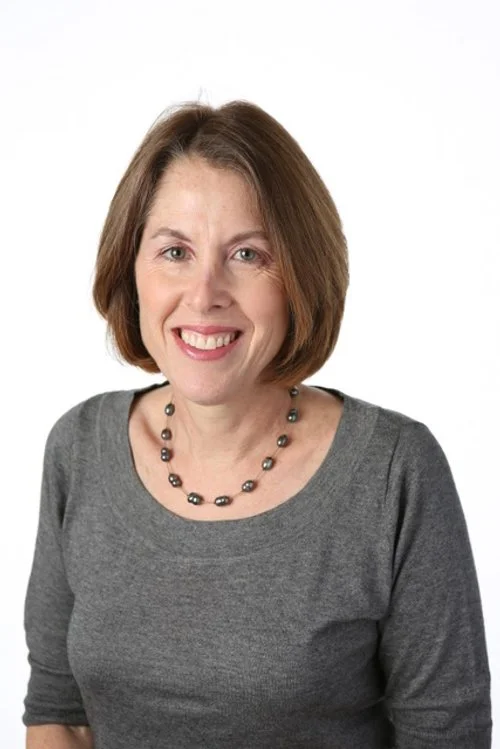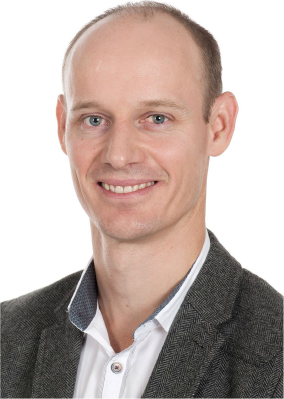ESA Plenary Speakers
-

A/Prof Trevor Angell
Keck School of Medicine of USC, LA
Read Bio
Trevor E Angell, MD is Associate Professor of Clinical Medicine in the Division of Endocrinology and Diabetes, at the Keck School of Medicine of USC, Los Angeles, California, where he serves as Medical Director of the Thyroid Center. He completed his M.D. and clinical training at the Keck School of Medicine and Los Angeles General Medical Center, including research fellowship studying thyroid cancer immunology. He joined the endocrinology division at Brigham and Women’s Hospital and Harvard Medical School, where he conducted clinical and translational research on the diagnostic evaluation of thyroid nodules and thyroid cancer, before returning to USC where he is now. His current clinical and research activities focus on the diagnosis and management of thyroid nodules and cancer, as well as functional thyroid diseases. Dr. Angell is a current member of the American Thyroid Association’s thyroid nodule guidelines taskforce, and is Editor-in-Chief of Clinical Thyroidology.
-
Prof Gail Adler
Harvard University
Read Bio
Gail K. Adler, MD, PhD, FAHA is Professor of Medicine, Harvard Medical School and Chief of the Cardiovascular Endocrinology Section in the Division of Endocrinology, Diabetes and Hypertension, Brigham and Women’s Hospital. Dr. Adler graduated from Cornell University School of Arts and Sciences, received her MD from New York University School of Medicine, her PhD from New York University Graduate School of Arts and Sciences, and completed internal medical residency training at University of Virginia Hospital and endocrinology fellowship at Brigham and Women’s Hospital. She heads a multi-disciplinary, translational research program focusing on hormonal mechanisms of cardiovascular disease with an emphasis on the role of aldosterone and has published over 140 original research reports. She has been continuously funded by National Institute of Health (NIH) since fellowship and served on NIH study sections, editorial boards and been associate editor of highly respected journals. She chaired the recent Endocrine Society’s Guideline Development Panel on the Management of Primary Aldosteronism.
Dr. Adler is an outstanding mentor and has a long history of successfully mentoring faculty on career advancement and promotion through her roles as Chief of the Cardiovascular Endocrinology Section, Program Director of a NIH T32 training program for post-doctoral fellows, co-Chair Department of Medicine Promotions Committee, and Associate Clinical Research Center Director for BWH Center for Clinical Investigation, Harvard Clinical and Translational Science Center. She held a NIH K-24 Mentoring Award for ten years and received the 2018 HMS Scholars in Medicine Excellence in Student Mentoring Award and 2025 HMS William Silen Lifetime Achievement in Mentoring Award. Dr. Adler is passionately committed to promoting the careers of junior faculty.
ESA Invited Speakers
-

A/Prof Damon Bell
University of Western Australia
Read bio
Associate Professor Damon Bell is a dual specialist Chemical Pathologist and Endocrinologist with subspecialty expertise in the diagnosis and management of inherited and acquired cardiometabolic disorders. He has sessional appointments with PathWest Laboratory Medicine (chemical and cardiovascular genetic pathology), Royal Perth Hospital in the cardiometabolic service, Clinipath (Sonic Pathology), the University of Western Australia and private clinical practice. A/Prof Bell’s clinical practice focuses on lipid disorders, hypertension and metabolism. He coordinates the statewide adrenal vein sampling service for primary hyperaldosteronism for Western Australia. His research encompasses the clinical, pathologic and genetic aspects of cardiometabolic medicine, particularly lipid disorders and endocrine hypertension with national and international collaborations. He remains actively involved with teaching and is currently supervising PhD and Master candidates in the cardiometabolic field.
-

Dr Carmela Caputo
St Vincent’s Hospital
Read bio
Carmela is an Endocrinologist specializing in pituitary disease. She completed her medicine and endocrine fellowship in London (2004-2008) and practiced at St Vincent’s Hospital Melbourne as lead Endocrinologist from 2008 until 2021. She works with experienced pituitary neurosurgeons in private practice for optimal patient outcomes. Her PhD demonstrated that premenopausal females have better hormonal outcomes post-surgery for non-functioning adenoma. She has also researched cabergoline-associated valvular heart disease. In 2022, she received a scholarship for a fellowship in nutritional and environmental medicine, focusing on integrative health practices. Carmela is a board member of the Australian Pituitary Foundation and supports Endocrinologists managing pituitary patients in private practice.
-

Prof Roderick Clifton-Bligh
University of Sydney
READ BIO
Prof Roderick Clifton-Bligh is Head of the Department of Endocrinology at Royal North Shore Hospital, and conjoint professor in Medicine at the University of Sydney. He has been a clinician researcher since completing a PhD in the genetics of thyroid disorders at the University of Cambridge in 1998. His research focuses on the molecular bases of endocrine neoplasms, including Multiple Endocrine Neoplasia syndromes, thyroid cancer, phaeochromocytoma/paraganglioma syndromes, adrenal cancer, and pituitary neoplasms.
He is passionate about teaching and mentoring young physicians and has supervised 14 completed PhDs with six in progress. His work has been recognized by awards from NSW Cancer Institute (2013), Asia-Oceania Thyroid Association (2014) and the Endocrine Society of Australia Outstanding Clinical Practitioner Award (2021).
-

A/Prof Sunita De Sousa
University of Adelaide
Read bio
Sunita De Sousa is an Associate Professor at the University of Adelaide and Senior Staff Specialist in Endocrinology and Genetics at the Royal Adelaide Hospital. She completed her PhD on prolactinomas in 2020, receiving the University of Adelaide Doctoral Research Medal. Her ongoing research interests include pituitary tumours, multiple endocrine neoplasia and monogenic diabetes. She recently co-chaired the ANZ guidelines on genetic testing for monogenic diabetes and is now chairing the International Pituitary Society Genetics Guidelines Working Group. To support the emerging subspecialty of endocrine genetics, Sunita founded the EndoGen National Endocrine Genetics Network including a regular national MDT meeting. She is the current Secretary of the Endocrine Society of Australia.
-

A/Prof Christian Girgis
Westmead Hospital Sydney
Read bio
A/Prof Christian Girgis is a Senior Staff Specialist in the Department of Diabetes and Endocrinology at Westmead Hospital, Sydney, where he leads the Osteoporosis Re-Fracture Prevention and Metabolic Bone Services. He is a former Chair of the ANZBMS Clinical Practice Committee and serves on the Medical and Scientific Advisory Committee of Healthy Bones Australia. His research focuses on rare bone diseases, optimising osteoporosis therapies, and improving bone health outcomes in vulnerable and underserved populations.
-

Prof Jenny Gunton
University of Sydney
READ BIO
Professor Jenny Gunton completed her medical degree at University of Queensland followed by Endocrinology and Diabetes Specialist training and then a PhD in Molecular Biology with University of Sydney. Her post-doctoral studies were in the laboratory of Prof C Ron Kahn at Joslin Diabetes Centre and Harvard Medical School.
Professor Gunton is currently the President-Elect for the Endocrine Society of Australia. She is the Director of the Centre for Diabetes and Obesity Research at the Westmead Institute for Medical Research and Chair of Medicine at Westmead Hospital, The University of Sydney. Prof Gunton’s clinical interests include diabetes, obesity, and brittle bone disease. Her research focusses on beta-cell function, islet transplantation and the intersection of transcription factors and their regulation by nutrients including iron and Vitamin D. Prof Gunton holds an Investigator Grant, Leadership Level 2.
-

Prof Helena Teede
Monash Centre for Health Research and Implementation
Read bio
Prof Helena Teede MBBS FRACP FAAHMS FRANZCOG FRCOG PhD AM is a clinician academic and reproductive endocrinologist at Monash Health. She holds a Professorship and L3 NHMRC Investigator Fellowship in women’s health. She is Director Monash Centre for Health Research and Implementation, Monash University, with a team of 120 and leads the NHMRC Centre for Research Excellence for Women’s Health in Reproductive Life. She has over 750 publications and $91M in career grant funding, mostly as lead. Her focus area is in endocrine, reproductive and metabolic interactions. She is a world leader in PCOS and leads the International PCOS Guidelines with expertise in pregnancy health, infertility and menopause. She is the current President of the International Society of Endocrinology, chairs a WHO task force and has awards including an Order of Australia for services to women’s health, the US endocrine Society Laureate award, and international awards for research excellence. She has supervised 60 advanced trainees in endocrinology and 65 PhD students. She’s also passionate about gender quality and leadership and research and professional development program building capacity for women in healthcare and health and medical sciences.
-

Prof Herbert Herzog
UNSW Sydney
Read Bio
Professor Herbert Herzog earned his PhD in Biochemistry from the University of Innsbruck, Austria, in 1989. In 1991, he relocated to Sydney, Australia, to launch his distinguished research career at the Garvan Institute of Medical Research, where he secured continuous funding through prestigious NHMRC project grants and fellowships. In 2024, he joined the St Vincent’s Centre for Applied Medical Research (AMR) as Program Head of the Eating Disorders Program, while maintaining a Conjoint Professorship at University of New South Whales (UNSW). He is currently supported by a NHMRC Investigator Grant (L3).
With a focus on neuroendocrinology, Prof. Herzog has advanced our understanding of neuropeptides, specifically members of the neuropeptide Y (NPY) family, and their role in metabolic regulation, appetite control, and behavior. His research has helped to better understand the neural mechanisms governing metabolic diseases and provided the basis for translating these discoveries into novel therapies for obesity, anorexia nervosa, and type 2 diabetes. By unravelling the intricate brain-body interactions underlying these conditions, his work bridges fundamental science and clinical innovation.
-

Emma Jamieson
The University of Western Australia
READ BIO
Dr Emma Jamieson is a Future Health Research and Innovation Fund Translational Research Fellow with UWA Rural Clinical School of WA, based in the Southwest region. As part of a team of state-wide researchers and clinicians she conducts collaborative community and health services research to improve health outcomes in rural and remote Australia. The predominant focus of her research is improving outcomes for people with diabetes; her PhD on screening for hyperglycaemia in pregnancy in rural and remote communities has led to implementation of improved preanalytical protocols for glucose measurement and a collaboration with the National Harmonisation Glucose Preanalytical Working Party.
Prior to this her focus was on pancreatic islet biology and transplantation research at St Vincent’s Institute (Melbourne) and Harry Perkins Institute (Perth).
-

Prof Tim Jones
University of Western Australia
Read Bio
Professor Jones is a renowned clinician researcher in the field of paediatric diabetes.
As Co-Director of the Children’s Diabetes Centre, a JDRF Global Centre of Excellence that integrates clinical and research capabilities, he is focused on improving outcomes for children with diabetes through innovative approaches and collaborations with a translational focus and is also the Director of Research at Perth Children’s Hospital.
Providing national leadership in clinical, research and advocacy roles, Professor Jones is internationally recognised as a leader in his field. His clinical diabetes service was the first in Australia to introduce insulin pumps in paediatric care which led to a paradigm shift in clinical practice. Professor Jones was an integral part of the successful lobby for Federal funding for continuous glucose monitoring technology for T1D patients under 21 years in Australia. He co-authored the International Society for Pediatric and Adolescent Diabetes (ISPAD) guidelines for management of hypoglycaemia.
-

Albert Kim
Westmead Hospital
Read Bio
Albert is a Staff Specialist Endocrinologist at Westmead Hospital and a PhD candidate at the Garvan Institute of Medical Research. His research focuses on skeletal complications of endocrine therapies, with particular expertise in osteoclast biology, denosumab rebound, and sequential osteoporosis treatments. He has received multiple national and international awards for his research and contributes actively to endocrine and musculoskeletal research through various committee roles.
-

Dr Ben Lawrence
University of Melbourne
Read bio
Dr Ben Lawrence is an early career researcher at The University of Melbourne investigating placental and uterine function across a diverse range of species. Ben first completed his Bachelor of Biomedical Science (Honours) at The University of Newcastle, where he investigated the role of cytokines in urinary tract infections. Following his honours research project he was awarded the Faculty Medal and the Dunkley Medal for research and academic excellence. Ben then completed his PhD at The University of Newcastle under the supervision of Prof. Lee Smith, which is where he developed his passion for reproductive endocrinology. Ben’s PhD focused on functional differences in the human and mouse androgen biosynthesis pathways with the goal of developing improved models of androgen deficiency. During his candidature Ben was the recipient of the ESA Gail Risbridger Junior Scientist Award in 2022, and the ESA basic science lightning talk/poster award in 2023. Ben is a current member of the ESA early career committee. In his spare time, he will either be out walking his labrador dog or watching sports.
-

A/Prof Melissa Lechner
University of California, Los Angeles
Read bio
Melissa G. Lechner, MD, PhD is an Assistant Professor of Medicine in the Division of Endocrinology at the University of California Los Angeles. After combined M.D./Ph.D. training at the USC Keck School of Medicine, she completed a combined residency in internal medicine and paediatrics at the Harvard Medical School hospitals and a clinical fellowship in endocrinology at UCLA. Dr. Lechner’s clinical and research focus is on understanding mechanisms of spontaneous and cancer therapy associated autoimmunity, with a focus on endocrine organs. She established the Onco-Endocrinology clinic and UCLA Immunotherapy Toxicity team and serves on the National Comprehensive Cancer Network (NCCN) and American Society of Clinical Oncology (ASCO) Management of Immunotherapy Toxicities guidelines panels.
-

Pamela Lincoln
Read bio
Pamela Lincoln is currently a wine producer based in Albany, WA but previously trained as a Dietitian with a Master's Degree in Public Health from Curtin University. She was diagnosed with Conns/Primary Aldosteronism almost 3 years ago after only a short duration of symptoms - thanks mostly to one of Dr Norman Swan's Health Report programs which featured an item on PA, following the publication of some important research conducted in primary care in Australia. Pamela is grateful that her condition did not go untreated for the typical period (often years), and that she therefore has no end-organ damage. She hopes that one day all patients will receive rapid diagnoses, and adequate treatment with correct medication (or surgery if suitable) and is volunteering on several research projects and PACE as a consumer representative to try to hasten this.
-

A/Prof Tania Markovic
University of Sydney
Read bio
Tania Markovic MBBS PhD FRACP is the Director of the Metabolism & Obesity Service, a senior staff specialist in the Department of Endocrinology at the Royal Prince Alfred Hospital in Sydney and a clinical associate professor in the Faculty of Medicine and Health, University of Sydney. For the last two decades, she has been working in a clinic specifically for people with Prader-Willi Syndrome and neurodiverse conditions associated with obesity. As a member of the International Network for Research, Management & Education of adults with Prader-Willi Syndrome (INfoRMEd-PWS), she is involved in producing guidelines on the management of all aspects of care of adults with PWS.
-

Anne Marland
Oxford University Hospitals
READ BIOAnne Marland is an advanced practitioner/nurse consultant and the lead nurse in adult endocrinology at the world leading, Oxford Centre for Diabetes, Endocrinology and Metabolism (OCDEM) in the UK. She leads a large team of 11 colleagues, whose skills and expertise are recognised across the UK. Anne’s career began in
the Neuroscience Department in Oxford and in 1998, she took on a senior research nurse role in
OCDEM and following this became an advanced endocrinology practitioner.
Anne has a keen interest in research and is currently a research fellow. Anne has been the patient and
public involvement representative for the NIHR for endocrinology and rare disease in the UK. Anne
has a keen interest in education and regularly delivers lectures worldwide. Anne chaired the working party that developed the Society for Endocrinology MSc in Adult Endocrine Nursing in collaboration with Oxford Brookes University in the UK and she was subsequently awarded the Society for Endocrinology Medal for outstanding contribution to Endocrine Nursing in the UK. Anne held the position of chair, for The Society for Endocrinology Nurse Committee and remains an active member of the Public Engagement Committee and co-opted to the nurse committee. Anne is passionate about Accademia for nurses and advancing the nursing profession worldwide.
-

Dr James McNeil
Royal Adelaide Hospital
Read Bio
Dr James McNeil is a dual trained Endocrinologist and Nuclear Medicine Physician at the Royal Adelaide Hospital and Jones Radiology. James graduated from Adelaide University with MBBS in 2015, obtained dual specialist fellowship of the Australasian College of Physicians in 2023. His clinical and academic interests are at the intersection of Nuclear Endocrinology with particular interest in Endocrine oncology imaging and theragnostics. In 2024, he completed further post-fellowship research at Royal North Shore Hospital as the Thyroid Cancer Fellow. He is currently undertaking PhD studies through the University of Adelaide examining novel applications of molecular imaging in pituitary tumours, supported by the Endocrine Society of Australia Higher Degree Research Scholarship and grant funding from the Neurosurgical Research Foundation and ANTSO/ANZSNM.
-

Dr Ee Mun Lim
Sir Charles Gairdner Hospital
Read Bio
Dr Ee Mun Lim is a Clinical Endocrinologist at Sir Charles Gairdner Hospital since 2006. She is also a Chemical Pathologist and was Head of Department in Clinical Biochemistry, Pharmacology & Toxicology at PathWest QEII from 2007 to 2022. She is currently Director of Regional Support and Services and supervises 22 branch laboratories. She has a special interest in endocrine biochemistry, especially of the adrenal and pituitary.
-

Dr Elisabeth Ng
Hudson Institute of Medical Research
Read bio
Dr Elisabeth Ng is an endocrinologist at Monash Health & Alfred Health, and a final year PhD candidate at the Hudson Institute of Medical Research in the Endocrine Hypertension Group. Her PhD is supported by an NHMRC Postgraduate Scholarship, Heart Foundation PhD Scholarship and RACP Vincent Fairfax Family Foundation Research Entry Scholarship.
Elisabeth’s PhD integrates clinical and basic science research to improve the diagnosis and treatment of primary aldosteronism. She received the John Funder Award in 2025 in recognition of her contributions to the field of mineralocorticoid receptor research. She is an active member of the Primary Aldosteronism Centre of Excellence and is part of the PA Forum working group.
In 2023, she undertook a clinical research fellowship at the William Harvey Research Institute, Queen Mary University of London, supported by the Endocrine Society of Australia Research Travel Scholarship. To further develop her clinical expertise, she is currently working in a full-time consultant role at St Bartholomew’s Hospital in London, UK.
-

Dr Quynh-Nhu Nguyen
The Royal Children’s Hospital
READ MORE
Quynh-Nhu Nguyen is a paediatric, adolescent and young adult endocrinologist with a special interest in the general and endocrine late effects of cancer treatment. She holds clinical appointments in the Victorian Statewide Paediatric Long-Term Follow-Up Program, leads the Endocrine Oncology clinic at Monash Children's Hospital, and sees young adults in the Peter MacCallum Late Effects clinic.
Quynh-Nhu is a post-doctoral research fellow in the Ovarian Biology Laboratory at Monash University, where her PhD focused on female fertility after chemotherapy; she is active in both laboratory and clinical research relating to oncofertility and late effects. She is a previous recipient of the Fertility Society of Australia ESHRE Exchange Award, the SRB David Healy New Investigator Award, and the Australia and New Zealand Society for Paediatric Endocrinology and Diabetes Emerging Investigator Award.
-

Brendan Nolan
Princess Alexandra Hospital
READ BIO
Dr Brendan Nolan is an endocrinologist at Princess Alexandra Hospital in Brisbane and Research Fellow in the Trans Health Research Group (University of Melbourne). Brendan’s PhD evaluated the safety and efficacy of gender affirming hormone therapy for transgender and gender-diverse individuals.He continues postdoctoral research evaluating optimal gender affirming hormone therapy with funding from the Royal Australasian College of Physicians-Endocrine Society of Australia Research Establishment Fellowship and a NHMRC Investigator Grant. Brendan was the recipient of the Bryan Hudson Clinical Endocrinology Award at the 2022 Endocrine Society of Australia Annual Scientific Meeting and was a finalist for the 2024 Victorian Premier’s Awards for Health and Medical Research.
-

Prof Bruce Robinson
University of Sydney
Read Bio
Professor Robinson is an Endocrinologist at Royal North Shore Hospital in Sydney. He was previously Dean of the Faculty of Medicine at the University of Sydney from 2006 – 2016. Since 2015 he has been Chair of the MBS Review Taskforce & Chair, and NHMRC. Professor Robinson is Chair of Research, Northern Sydney Local Health District and is part of a team leading fundraising with the goal of raising $50M to establish a new Cancer Centre on the RNSH campus incorporating Memorial Sloan Kettering in New York City.
-

Prof Markus Schlaich
The University of Western Australia
Read Bio
Prof Markus Schlaich is a renal physician and a European Society of Hypertension (ESH) accredited hypertension specialist. Markus is Chair of Hypertension Australia and Co-Chair of the National Hypertension Taskforce. He has a strong background in clinical research with a focus on the pathophysiology of hypertension, the role of the sympathetic nervous system, involvement of the kidneys, and hypertension mediated organ damage. He has a specific interest in treatment modalities targeting the sympathetic nervous system and has been a pioneer of renal denervation and other interventional approaches. He has authored more than 500 articles in peer reviewed journals and serves on the Editorial Board of Hypertension, Journal of Hypertension, and Hypertension Research.
-

Prof David Simmons
Western Sydney University
READ BIO
Distinguished Professor David Simmons is Chief Medical Officer for Diabetes Australia, Professor of Medicine at Western Sydney University, District Advisor on Diabetes for the South Western Sydney Local Health District and previous Director of the Macarthur Diabetes Endocrinology and Metabolism Service in Sydney, Australia. Before returning to Australia in 2014, Professor Simmons was the Clinical lead for the Diabetes service at Addenbrookes Hospital, Cambridge UK. With over 500 refereed publications, he has won several national and international awards for his work in diabetes epidemiology, diabetes in pregnancy and diabetes service development including the American Diabetes Association 2020 Norbert Freinkel Award, 2022 Diabetes in Pregnancy Study Group Pederson Award and 2025 International Diabetes Epidemiology Group Peter Bennett Award. He is the immediate past president of the Australasian Diabetes in Pregnancy Society (ADIPS). He is the Chief Investigator for APHLID, an RCT of a mental health/diabetes app in young adults with type 1 diabetes, the TOBOGM study the first large RCT of diagnosing and treating early gestational diabetes mellitus and Australian Chief Investigator for the CIRCUIT RCT of closed loop in pregnancies complicated by Type 1 diabetes and the CORDELIA RCT of CGM in GDM. He remains a practising endocrinologist holding weekly diabetes in pregnancy clinics.
-

Erica Spry
Rural Clinical School of Western Australia
READ BIO
Ms Erica Spry ‘Roobaanjarn’ is a local Traditional Owner of the Bardi Jawi native title lands and a prominent leader in the Kimberley region. She has extensive expertise in community and cultural brokerage, demonstrating active engagement roles with grass root communities from townships to very remote Aboriginal communities for over 30 years. She has led projects in various areas of land management, legal aid, and health research, which have resulted in substantial positive outcomes for Kimberley Aboriginal people. A particular focus has been on addressing health disparities. Erica is a Senior Aboriginal Research Officer with Kimberley Aboriginal Medical Services (KAMS) and a Research Fellow with the Rural Clinical School of Western Australia (RCSWA), University of Western Australia (UWA). She currently works on several collaborative research projects in wellbeing informed care and diabetes, including co-leading the Be Healthy project and ORCHID Study.
-

A/Prof Catherine Sinclair
Melbourne Thyroid Surgery
READ BIO
A/Prof Catherine Sinclair is a dual fellowship trained thyroid / head & neck surgeon and laryngologist. A/Prof Sinclair is the leading expert in Australia for nonsurgical treatment of thyroid nodules and cysts using thermal and chemical ablation. She introduced the technique of thyroid radiofrequency ablation to Australia in 2021, and also performed the first thermal ablation in New York City in 2019. Dr Sinclair chaired the American Thyroid Association Statement on ablation techniques for benign thyroid nodules. She worked as the Director of Head and Neck Surgery at Mount Sinai West in New York for over a decade before relocating back to Melbourne four years ago.She has authored numerous peer reviewed papers and book chapters on topics including thyroid ultrasound, thyroid cancer, intraoperative neuromonitoring, thermal ablation, and chemical ablation and is the current Editor in Chief of VideoEndocrinology, one of the three official journals of the American Thyroid Association.
-
Dr Chau Thien (Jillian) Tay
Monash University
Read bio
Dr. Chau Thien (Jillian) Tay is an endocrinologist and clinical academic specializing in polycystic ovary syndrome research and women's health. After completing her medical degree at the University of Tasmania, Dr. Tay pursued specialized training in Endocrinology and earned her Doctor of Philosophy (PhD) from Monash University, where her exceptional doctoral work was recognized with the prestigious Mollie Holman Award—Monash University's highest academic honor across all faculties.
Dr. Tay's outstanding research achievements have garnered international recognition. She holds a pivotal leadership role in the 2023 International PCOS Guidelines, where she established and coordinated the international early-mid career researcher network, supervising 52 systematic reviews and meta-analyses across eight countries. These efforts directly informed evidence-based guideline recommendations that transformed clinical practice standards for over 100 million women globally.
With over 70 publications, >3K citations, and an h-index of 27, Dr. Tay actively engages in leadership roles that underscore her commitment to mentorship, international collaboration, and advancing evidence-based women's healthcare.
-

A/Prof Jun Yang
Hudson Institute of Medical Research
Read Bio
A/Professor Jun Yang is the Head of the Endocrine Hypertension Group at Hudson Institute of Medical Research, a Consultant Endocrinologist at Monash Health, and a Senior Researcher in the Department of Medicine at Monash University, Victoria, Australia. Jun graduated from Monash University with a MBBS (Hon) in 2001, attained her FRACP in 2010, and completed a PhD in 2013 focusing on tissue-selective coregulators of the mineralocorticoid receptor (MR). She has since advanced basic and clinical research in the field of MR-driven cardiovascular disease, particularly primary aldosteronism, contributing to 131 original publications. She established Victoria’s first Endocrine Hypertension Service, co-leads the Primary Aldosteronism Centre of Excellence, and enjoys fostering national and international collaborations to enhance the detection and management of primary aldosteronism for better patient outcomes.
-

A/Prof Christopher Yates
The Royal Melbourne Hospital
READ BIO
Chris Yates completed his specialist training in Diabetes and Endocrinology at the Royal Melbourne Hospital and Western Health. Using continuous glucose monitoring, his PhD at the University of Melbourne investigated steroid induced diabetes in recent kidney transplant recipients. Alongside his PhD studies, Chris helped to establish the Royal Melbourne Fracture Liaison Service to improve the detection and treatment of osteoporosis. He then undertook a postdoctoral fellowship with Professor Rajesh Thakker at the University of Oxford studying the molecular biology of neuroendocrine tumours in MEN1. He is now employed as an Endocrinologist at the Royal Melbourne Hospital, where he is the Stream Leader for Pituitary Tumours and Head of Bone and Mineral Medicine. He is also Co-Director of Endocrine Research at Western Health and Co-Chair of the Australian and New Zealand Pituitary Alliance. His current research interests include: the molecular pathogenesis of pituitary adenomas, the clinical utility of peripheral quantitative CT in fracture prediction, and the use of continuous glucose monitoring to assess steroid-induced diabetes.
-

Prof Morag Young
Baker Heart and Diabetes Institute
Read bio
Prof Morag Young is co-lead of the Baker HDI Heart Failure Program and head of the Cardiovascular Endocrinology Laboratory. She is internationally recognised for her work defining the pathophysiology of the mineralocorticoid receptor (MR) in the heart and non-epithelial cell types. Prof Young took her PhD studies at the Baker Institute under the supervision of Professor John Funder investigating the pathophysiology of MR signalling in the heart and vasculature. Working with Prof Funder she was one of the first to demonstrate a direct cardiac mechanism of MR activation in cardiovascular disease (JCI 1994 >580 total cits). As a C.J. Martin postdoctoral scientist, she trained with the late Professor Keith Parker at UT Southwestern Medical Centre, Texas. During this period, she developed new transgenic mouse models and identified a new model of hypothalamic obesity (Endocrinol 2002, >320 cits). Upon returning to Australia she continue her post-doctoral training with Associate Professor Tim Cole which enabled the creation of novel cell-selective knockout models of the MR. In 2002, she was recruited to Prince Henry’s Institute of Medical Research (now Hudson Institute of Medical Research) to work with Professor Peter Fuller and established her laboratory and a discovery research program to identify novel mechanisms of MR action in cardiovascular disease, including cell-selective pathways in macrophages, cardiomyocytes, and endothelial cells that are relevant to both males and females. Most recently, this work has uncovered a highly novel interaction between the MR and the molecular clock in the pathogenesis of cardiovascular disease. In 2000 Prof Young was recruited to the Baker HDI as the inaugural Alice Baker and Eleanor Shaw Gender Equity Fellow. Her 2023 Nat Comms paper demonstrated an independent role for circadian disruption on blood pressure that was sex specific. More recent discoveries from the Young group include the highly novel discovery of a functional interaction between the MR and the molecular clock and importance of non-canonical signalling pathways for the MR in macrophages, both of which are central to the development of cardiovascular disease. Prof Young is a CI for the PACE Centre of Research Excellence and leads preclinical research for the program and has been supported by >$7,110,000 in funding as CIA. She has trained over 20 PhD students and ECRS, and over 30 undergraduate research scientists.


